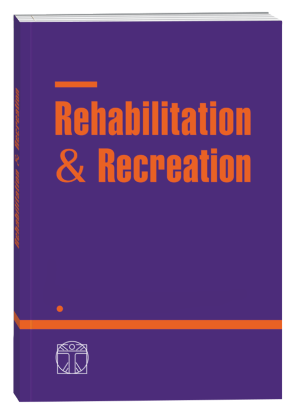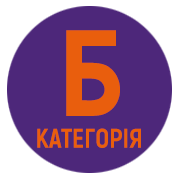EDUCATION – THE WAY TO THE FUTURE
DOI:
https://doi.org/10.32782/2522-1795.2023.15.33Keywords:
education, knowledge, pupils/students, teachers/lecturers.Abstract
Today, it is not enough to provide certain knowledge in biology, history, mathematics, literature, chemistry, physics, physical education, etc., which can be obtained from the Internet and non-formal education in addition to school. Education today lacks the opportunity to consider the fundamental principles of life of an individual, a citizen and, most importantly, a Human Being (!). In order for a pupil/student to comprehend such a philosophy of life, both the teacher and the pupil/student need to integrate a lot of knowledge, which requires a more complex (integrated) way of understanding nature and society. Hence, the need to rely on two main stages in the educational process, taking into account the individual development of cognition: 1) spontaneous, i.e. conservative, not properly realized; 2) active-action, which is conscious, consciously organized and aimed at special knowledge production. The purpose is to reveal current trends in the development of education and ways to reform it. Methods. In our theoretical study, we used methodological ideas, methods and approaches that are correlated with the European-centric ideology and methodology of the New Ukrainian School. Results. The paradigm shift in education in the context of the theory of cognition should be carried out by introducing the following complex topics at all levels of education – from primary to the following complex topics: knowledge of knowledge and its evolution; knowledge of nature and society, understanding of the human; comprehension of the ethical triad – individual-society-species. This approach will help to develop the abilities of pupils/students to understand individual and collective problems in all their complexity, and the educational process will arouse interest in ambiguity and ambiguity, and develop the ability to unite antagonistic relationships. The new system of education should consider different forms of rationality (theoretical, critical, self-critical), distortions of rationality (rationalization, instrumental reason, artificial intelligence), the expediency of open rationality (mainly scientific data that deny it and external criticism). education should not be about preparing for tests, but about helping students find their place in social life. It is necessary to realize that the economy in the twenty-first century no longer pays for what a person knows, but rewards what a person is able to do with what he or she knows. educational programmes are needed that emphasize self-esteem and individual development, the formation of the ability to advise oneself in life, teaching to learn and to acquire knowledge, i.e. to think, the development of academic and professional, physical and artistic abilities. It is important to assess whether a pupil/student is able to think, to translate a real problem into quantitative indicators. As with any reform, radical changes in education require the training of new teachers who would be able to implement the meaning of the civic and ethical mission in their professional activities, so that each pupil/student could solve important problems of their personal and civic life, create preconditions for the development of the future of their society, their civilization and humanity. Conclusion. The main goal of education in the twenty-first century is to teach knowledge, prepare pupils/students for adult and professional life, teach them to learn throughout life, help them learn to know the world, acquire intellectual, emotional, physical, social and strategic resources to solve a variety of problems and at the same time overcome difficulties and take risks.
References
Арзютов Г.М., Лахно Д.М., Рябчун Л.Я., Арзютов Г.Г., Квартич В.В. Визнання української боротьби на поясах у світі. Національні бойові культури в контексті світової цивілізації. Феномен: матеріали міжнародної науково-практичної конференції. Запоріжжя, 2015. С. 5-12.
Биков В.Ю. Моделі організаційних систем відкритої освіти: монографія. Київ: Атіка, 2008. 684 с.
Вовк О.І. Філософські основи пізнання: мультипарадигмальність і гносеологічний плюралізм. Науковий вісник Східноєвропейського національного університету імені Лесі Українки. Філологічні науки. Літературознавство. 2014. Вип. 19. С. 21-25.
Готтман Джон, Деклер Джоан. Емоційний інтелект у дитини. Харків: Віват, 2022. 272 с.
Ґоулман Деніел. Емоційний інтелект. Харків: Віват. 2018. 508 с.
Драйден Гордон, Вос Джаннетт. Революція в навчанні. Львів: Літопис, 2005. 541 с.
Дутчак Руслан. Надбавка за престижність праці за рахунок ОМС – нюанси. Бухгалтерія для бюджету та ОМС. 2022. № 3. С. 3-6.
Запорожан В. Ноосферне мислення В.І. Вернадського – нооетика. Світогляд. 2013. № 1. С. 48-51.
Концепція нової української школи. Упорядники: Л. Гриневич та ін. К., 2016. 34 с.
Мицкан Б.М., Мицкан Т.С. Рівень сформованості акмеологічної компетентності бакалаврів фізичної культури. Матеріали п’ятого регіонального науково-методичного семінару, приуроченого 30-й річниці створення Національного олімпійського комітету України «Інноваційні підходи до фізичного виховання і спорту студентської молоді». Тернопіль, 18-19 грудня 2020 р. Тернопіль, 2020. С. 112-115. 11. Заборняк С., Кухцяк М., Мицкан Б., Мицкан Т. Фізична культура в українських школах Галичини (1986–1918 рр.). Вісник Прикарпатського університету. Серія: Фізична культура. 2020. Вип. 35. С. 32-41.
Морен Едгар. Шлях. За майбутнє людства. К.: Ніка-Центр, 2014. 255 с.
Пилат В. Бойовий гопак. Галицька видавнича спілка. 1999. 336 с.
Приступа, Є.Н. Становлення і розвиток педагогічних основ української народної фізичної культури: дис. докт. пед. наук. Львів, 1995. 367 с.
Рансьєр Жак. Учитель-незнайко. П’ять уроків із розкріпачення розуму. К .: Ніка- Центр, 2013.168 с.
Робінсон Кен, Лу Ароніка. Школа майбутнього. Львів: Літопис, 2016. 257 с.
Табачковський В.Г., Булатов М.О., Хамітов Н.В. Філософія: світ людини: навч. посіб. Київ: Либідь, 2003. 432 с.
Товканець О. Особливості управління освітою в центральноєвропейських країнах на регіональному і національному рівнях. Молодь і ринок. 2021. №5-6 (191-192). С. 25-31.
Хамітов Н.В. Філософська антропологія: актуальні проблеми. Від теоретичного до практичного повороту. 3-тє видання, виправлене і доповнене. Київ: КНТ, 2020. 396 с.
Цьось А.В. Українські народні ігри та забави: навч. посіб. Луцьк: Надстир’я, 1994. 96 с.
Carl Honore. In Prause of Slowness: How a Worldwide Movement Is Caltenging the Cult of Speed. San Francisko: Harper SanFrancisko, 2004. 320 p.
Eisner Elliot W. The Arts and the Creation of Mind. Yale University Press, 2004. 280 р.
Green Elizabeth. Building a Better Teacher: How Teaching Works (and How to Teach It to Everyone). WW Norton & Company, 2014. 397 р. 24. Hanushek Eric A. An Effective Teacher in Every Classroom: A Lofty Goal, but How to Do It? Education Next. 2010.N10(3). P. 47–52.
Joe Harrison. One Sice Doesn’t Fit All! Slow Education at Hole Trinity Primary School Darwen. http://sloweducation.co.uk/2013/06/13/ one-sitce-doesn’t-fit-fll-slow-education-at-holy -trinity-schul-darwen/.
National Report on the Results of the International PISA-2018 Education Quality Survey. Qty. ed.: M. Mazorchuk (main author), T. Vakulenko, V. Tereshchenko, G. Bychko, K. Shumova, S. Rakov, V. Gorokh and others; Ukrainian Center for Educational Quality Assessment. Kyiv: UCEAO, 2019. 439 p. http:// testportal.gov.ua//wpcontent/uploads/2019/12/ PISA_2018_Report_UKR.pdf
Partanen Anu. What Americans Kcep Ignoring About Finland’s School Success. The Atlantic.com., 29.12.2011. http://www. Theatlantic. com/national/archive/2011/12/what-americans- keep-ignoring-about-finlands-school-success/ 250564#.Tv4jn7hW2CU.twitter.
Smith Alistair. High Performers: The Secrets of Successful Schools. Carmarthen Wales: Crown House Pub. 2011.
Sugata Mitra. The Child-Driven Education. http://www.ted.com/talks/sugata_mitra_ the_child_driven_education/transcript? language= en
Downloads
Published
How to Cite
Issue
Section
License

This work is licensed under a Creative Commons Attribution-NonCommercial-NoDerivatives 4.0 International License.











